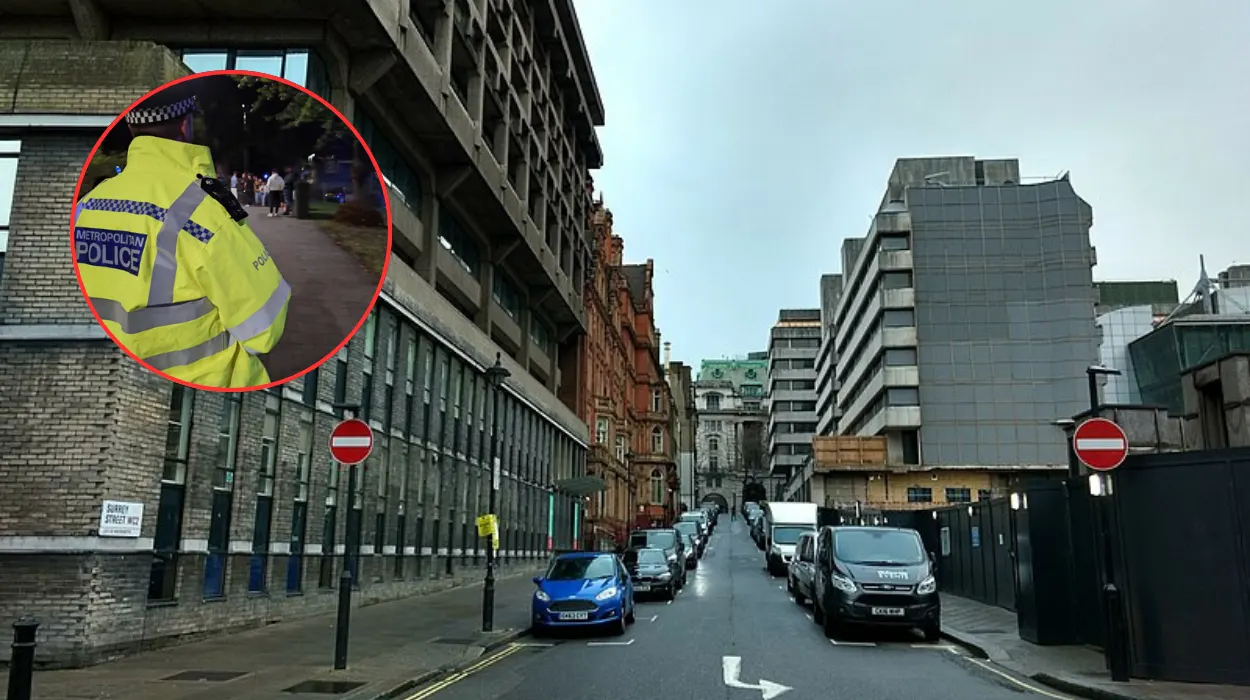Croydon (Parliament Politics Magazine) – The Metropolitan Police has confirmed it will not use Live Facial Recognition cameras on Surrey Street, Croydon, despite calls to curb crime and anti-social behaviour.
According to some merchants, they were informed last week that Fairfield, the town center district where Surrey Street is located, would receive four more police officers to strengthen patrols and use the contentious LFR cameras amid the street’s stalls and stores.
The impact of drug sales in broad daylight is felt in the vicinity of Surrey Street, where two murders have occurred in the last two years.
Members of the newly established Croydon Business Association and traders on Surrey Street have been pleading with the Metropolitan Police and Jason Perry, Croydon’s current mayor, for greater urgency in addressing the problems they face on a daily basis.
They allege that Mayor Perry, who is also director of Croydon BID, has ignored their concerns and even attempted to exclude them from town centre meetings.
Over the weekend, Dabners—a long-standing pet store—closed permanently. The owners cited declining foot traffic, high rates of theft, and threats of violence against staff as key reasons for the closure.
Despite hundreds of thousands of pounds in grant funding allocated for Surrey Street, no renovation projects have yet been implemented under Mayor Perry’s leadership.
Eighteen months after the fatal stabbing of Rijkaard Siafa in Fellmonger’s Yard, market traders say their calls for additional CCTV coverage have still gone unanswered.
Live Facial Recognition, a contentious AI-driven technology that identifies individuals in public spaces, has been trialled in Croydon over the past two years—specifically on North End—raising privacy concerns.
Now, for the first time in British history, the Met is rolling out LFR cameras on London Road and North End. Although initially slated for installation this summer, the force now describes the deployment as a “pilot scheme,” noting that the cameras are “not permanent and not fixed.”
The Met maintains that cameras will only be activated when officers are present and using the technology.
Mounting criticism from civil liberties organisations and the absence of a clear legislative framework appear to have prompted caution within the force.
Each LFR deployment’s date, time, and place are publicized by the police, who also post signs in the vicinity. According to a Metropolitan Police source,
“In no way is this a covert tactic.”
Since the first Croydon deployment in December 2023, LFR operations across London have led to the arrest of around 360 individuals.
The Met currently operates four to six mobile LFR units, which are used at events or key locations as needed. However, in response to community concerns, it has cancelled plans to deploy LFR at this weekend’s Notting Hill Carnival.
It also appears unlikely that Surrey Street Market will see LFR vans deployed anytime soon.
A spokesperson for the Met said:
“We are aware of residents’ and shop-owners’ concerns in Fairfield and are increasing police presence in the area to tackle crime and protect the community.”
The Met reports that shoplifting incidents in Croydon have fallen by “nearly one-third” in the past six months.
“We will be going further with enhanced police and partner activity this summer targeting wanted and prolific offenders, particularly for offences including shoplifting and anti-social behaviour.”
Fairfield and Broad Green—two of Croydon’s busiest wards—each have dedicated policing teams comprising one sergeant, five constables, and five Police Community Support Officers (PCSOs). In addition, a permanent town centre unit includes 21 constables, three sergeants, and one inspector.
Additionally, there is a permanent town center team consisting of 21 constables, three sergeants, and an inspector.
“There are no current proposals to change the number of officers in these areas,”
the Met spokesperson said. While Croydon’s police front desk remains open, the Met has announced spending cuts, job reductions, and the closure of 18 front desks across the capital due to budgetary pressures.
Croydon is among 20 London town centres and high streets benefiting from “enhanced” police and partner activity this summer.
“This includes increased police patrols and intelligence-led plain-clothed operations in hotspot areas,”
the Met has said.
What are the main concerns about deploying facial recognition in Croydon’s market?
Many residents and civil liberties groups worry that live facial recognition (LFR) cameras amount to mass surveillance, capturing and analyzing the biometric data of everyone passing through public spaces, often without their knowledge or consent.
This level of surveillance is seen as intrusive and chilling to free movement and expression, raising fears of a “dystopian” atmosphere in everyday life.
There is criticism that the use of facial recognition cameras outpaces current laws and lacks comprehensive legal safeguards. Human rights advocates describe the regulatory environment as a “wild west,” with no clear, consistent framework to control where and how biometric data is stored, accessed, or shared by authorities.


